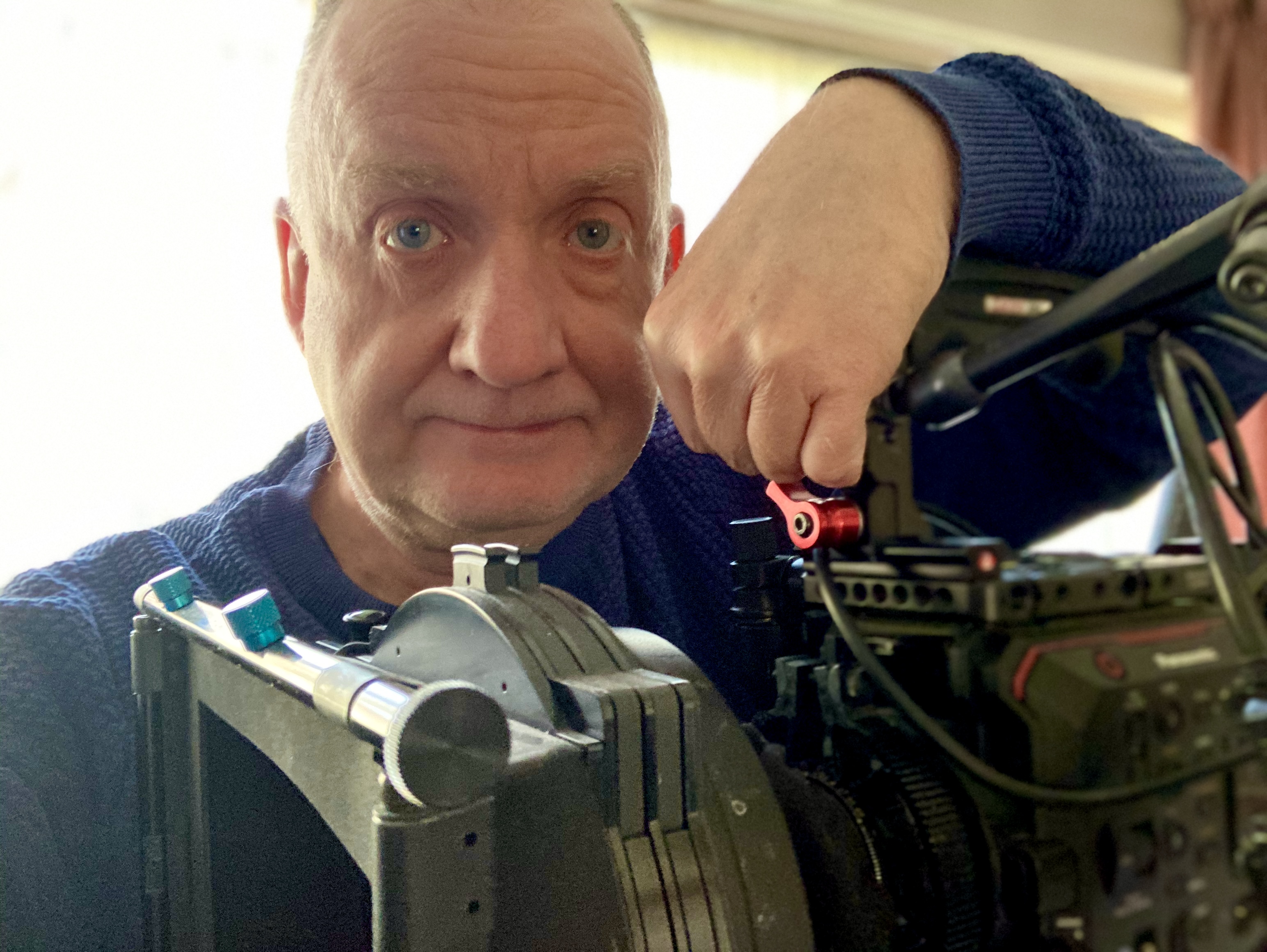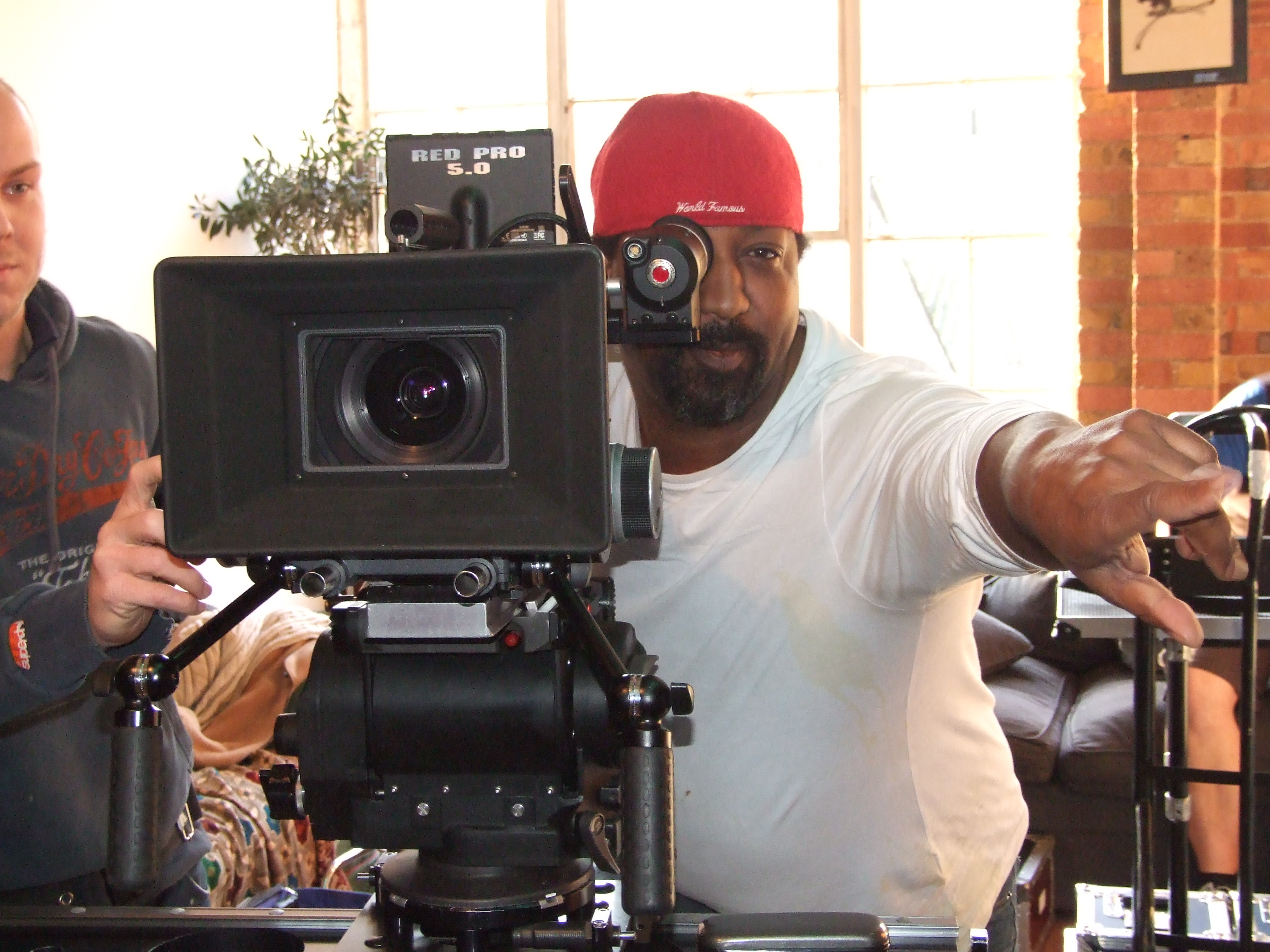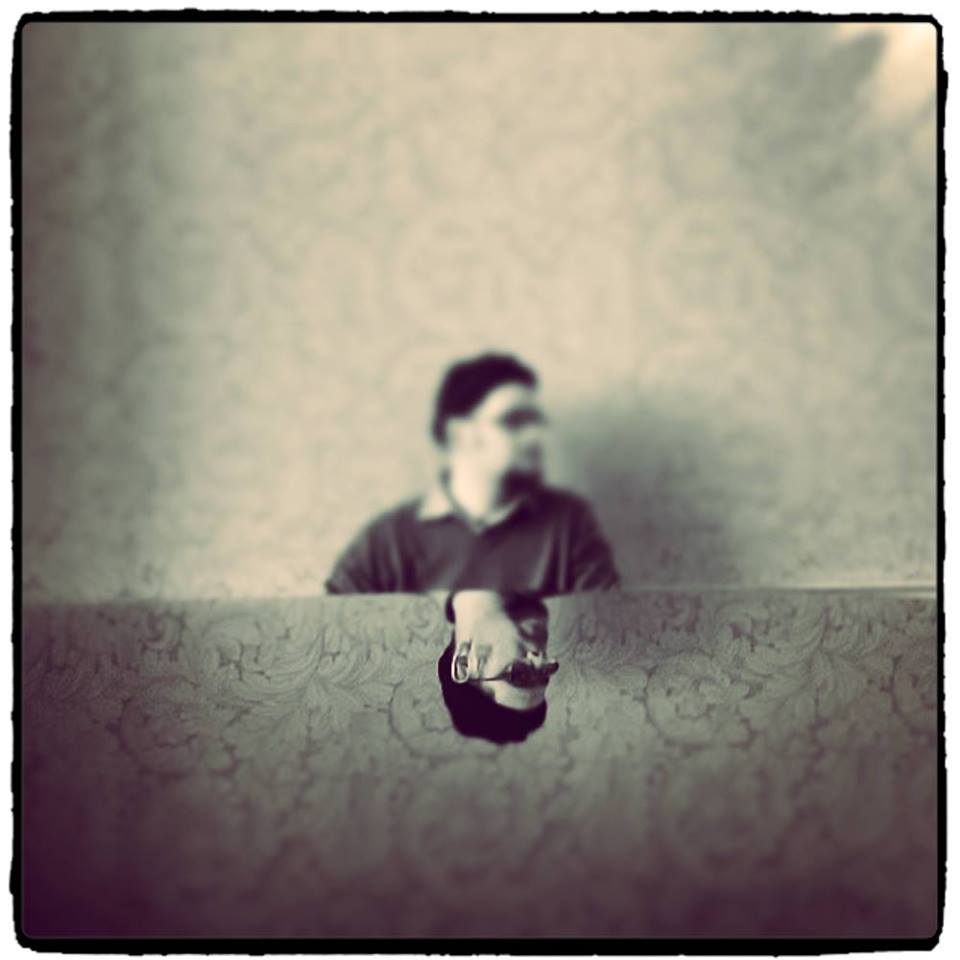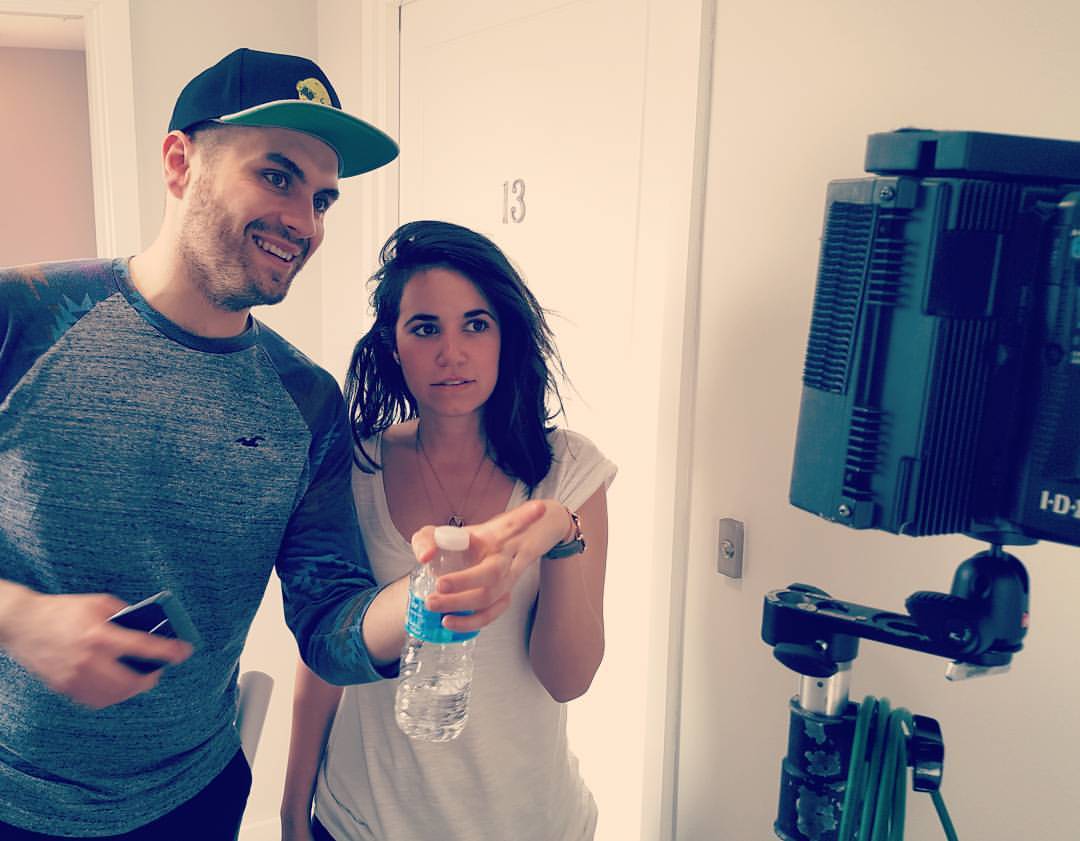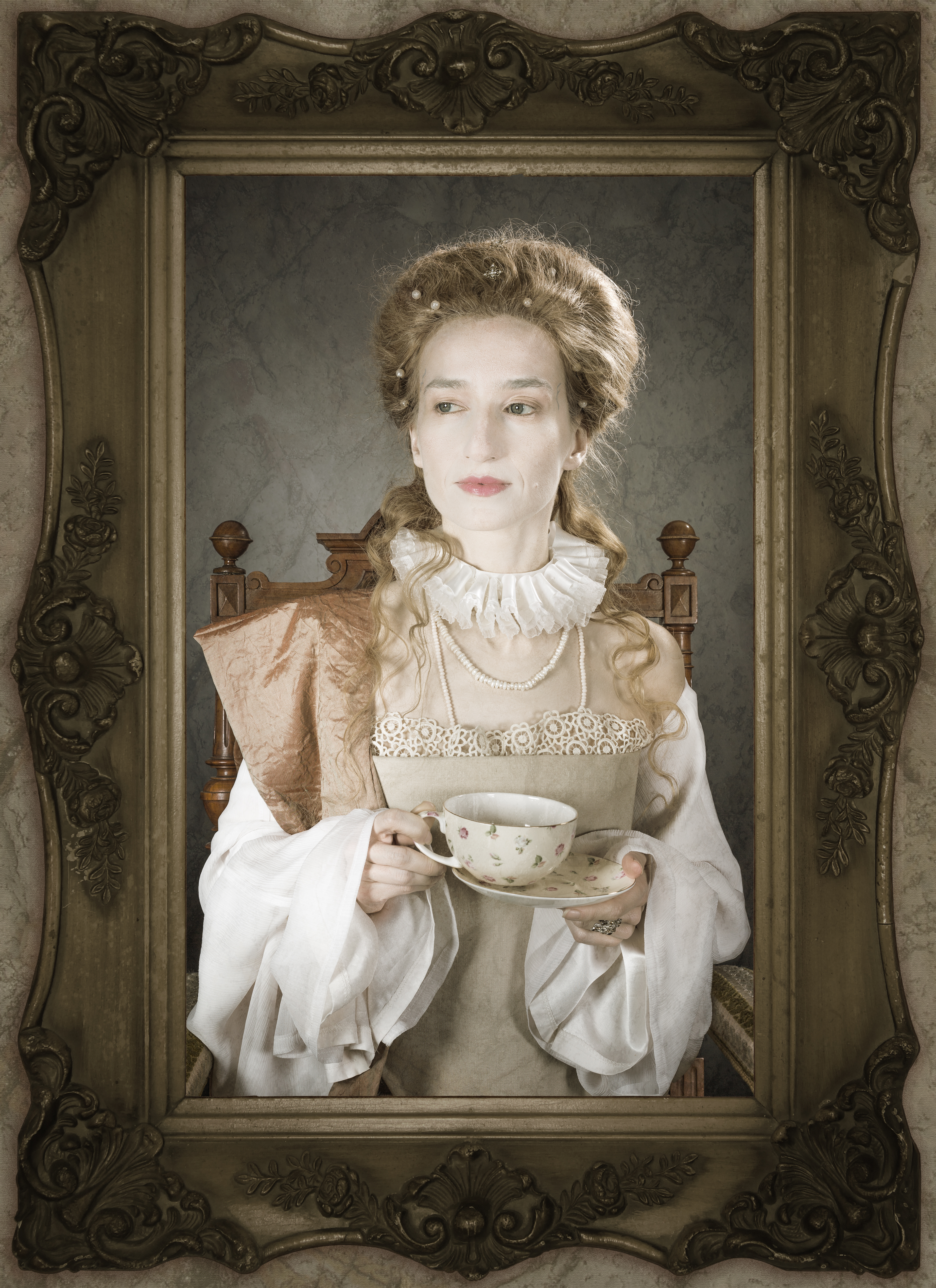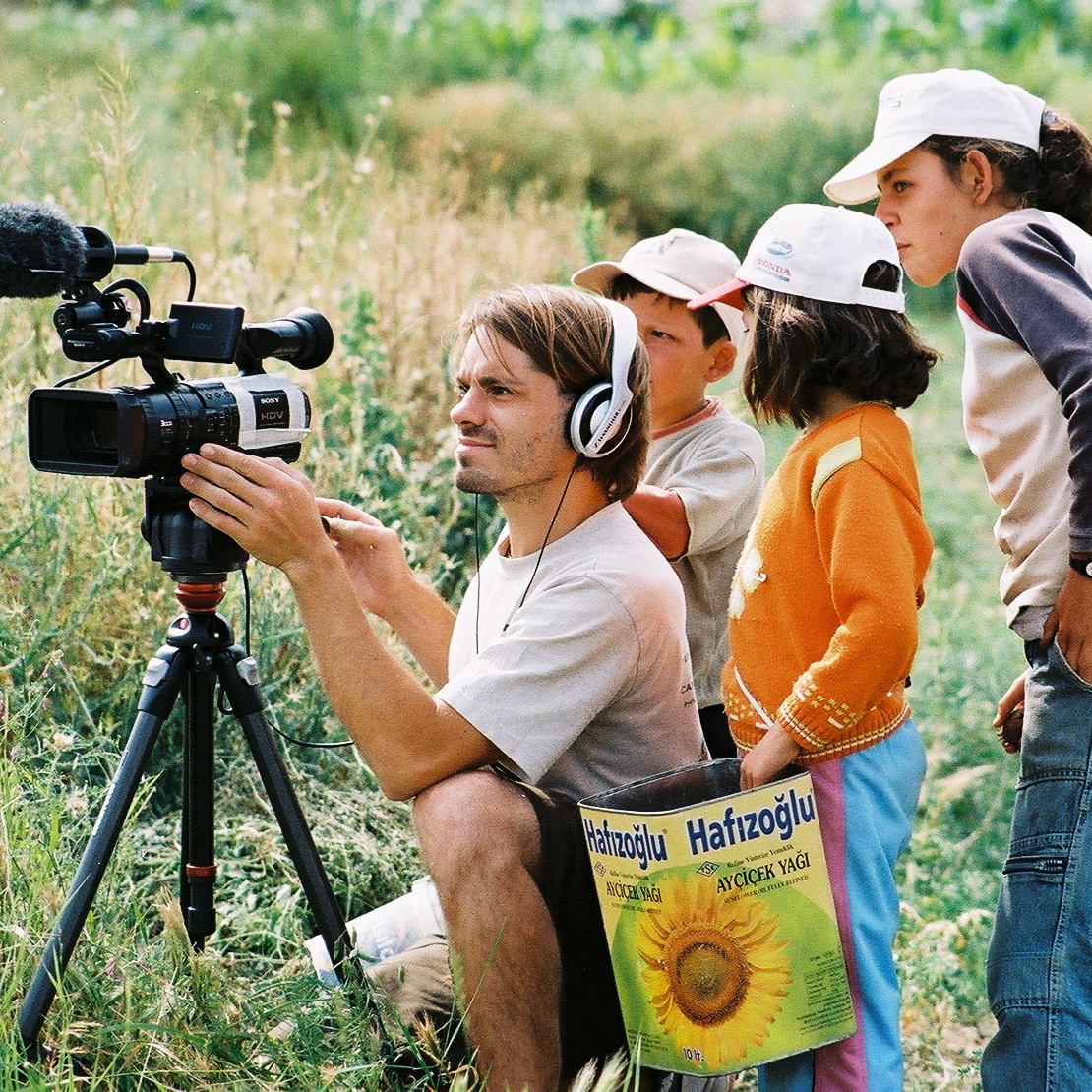ASK & DISCUSS
INDEXAdvice to Producers on hiring Camera Operators
10 years, 8 months ago - Mark Wiggins
First of all, this does not refer to single person camera operation but to the world I inhabit; the world of the camera crew: Camera Operator, 1st AC (Focus Puller), 2nd AC (Clapper/loader), grip and DIT.
I am a camera operator. A few years ago I was lucky enough to be invited to join the ACO (Association of Camera Operators), the UK's equivalent of the SOC; so I know a thing or two.
I keep seeing posts for camera operators saying "must have experience of Epic" or must have experience of Black Magic" etc. Specifying a particular camera. This is a condition that should be placed on the Focus Puller, not the Operator. You do not need to specify knowledge of any particular camera when advertising for an operator.
It is the Focus Puller, that needs to know a particular camera. It is the Focus Puller who builds the camera at the start of the day, physically navigates the menus to set the camera up, maintains the camera through the day, makes any modifications to it that are required for a particular shot and then brakes the camera down at the end of the day.
The Camera Operator frames all the shots. He/she does this by operating Geared heads, fluid heads, remote heads, handheld, steadicam, Movi etc. He does not have to know anything specifically about the camera, just how to frame the shots using the methods described above. The Focus Puller is the guy who actually looks after the camera.
Many of the top Camera Operators in the country (the people working on Star Wars, Bond etc) were working as ACs in the era of film; before the digital revolution. A lot of them could not navigate their way around the menus on an Alexa or tell you what all the different buttons do on a Sony F55. Their Focus Pullers know how to do that. The Operators are hired for their ability to frame well.
So, when hiring an Operator, you should look at their showreel, and, if you like what you see, hire them. Don't ask them what cameras they have used as that is irrelevant. That is what you should ask the Focus Puller. In the same way, hire a DOP because he can create fantastic pictures, not because he knows how to attach an Alphatron EVF to a Scarlet via a Nato Rail; that is the job of the Focus Puller.
I hope that helps.
Only members can post or respond to topics. LOGIN
Not a member of SP? JOIN or FIND OUT MORE
10 years, 7 months ago - Owen A Smith
If its any help you you as a Director of Photography cinematographer and camera operator I would say that these roles are considered creative but to do them well you should have some level f technical understanding. But I did attend art collage many years ago or as its now known as the University of Creative Arts UCA.
It really depends on each director as to how creative you can be on a shoot. I have worked with directors that don't really have a clue. Or t might be that they are a first time director. And need the guidance of the Director of Photography or Cinematographer and other times. The director know exactly what shot he r she wants and then you might find that you don't get to be as creative as you might like.
Generally speaking a working relationship is built up and trust. Ad when that is in place then quite often you can offer up shots. And give ideas and guidance to the director who will either take it on board or stick to exactly what he wants. Again hope that helps.
10 years, 8 months ago - Hans Lucas
This is a good thread Mark. I think the problem stems from a lack of real experience, so I hope people read this in good spirit and try to learn from it. As other people have pointed out the core issue can be extrapolated to other areas of production. One clear parallel, to me, is Editors that must exclusively use a given platform - which means people are being recruited not on their understanding of the craft but on the tools they have available. There are countless ways to conform rushes to suit multiple Edit platforms. Watch the work of an Editor - if one likes the work hire that editor, regardless of the tools they prefer to use. If one hires an Editor that can use their preferred platform the chances are the work will be to a higher standard and completed with greater efficiency. As for 1st AD's I also agree. Not only do many people not grasp the role of the 1st they fail to understand when duties should be delegated to 2nd/3rd AD or even Production Assistants/Coordinators. If one asks too much of a 1st AD and expects them to perform roles/duties that are not exclusively theirs then expect things to go awry when production begins.
10 years, 8 months ago - Simon Stanford
Thanks for the advice Mark, I've tried contacting Panavision and the others this morning but they're not open on Saturdays. Just need to find some runner positions.
10 years, 7 months ago - Alève Mine
Using the opportunity to ask: is the cam op job seen as technical, or artistic? How much freedom given by the director in framing, and even angles, is appropriate generally speaking, as an industry standard? How does the cam op relate to the cinematographer?
10 years, 8 months ago - Simon Stanford
I'm a young camera operator and aspiring DOP. I usually find it difficult to apply for camera operator roles due to the specific camera experience needed. I have experience with various cameras; Sony, Panasonic, Canon etc but with so many demanding specific experience with a particular RED I find it difficult to get noticed.
I appreciate that your post is directed at bigger productions and that in my case I'm aiming at the single camera productions, however even when I apply for camera assistant roles it seems dependent on what RED I have used. What annoys me is that I know I would grasp any camera after a play, I love geeking out.
10 years, 8 months ago - Mark Wiggins
I think if they expect an operator to bring Acs with him/her they should say so in the original post. You also see posts where they ask for a Camera Operator who has knowledge of a particular camera and then, further down, they ask for a Focus Puller. All to often, I find, when I speak to people, they seem reluctant to have Acs, seeing them as yet more people they have to feed and pay expenses to (and it is low-budget freebies I'm talking about. Posts for paid jobs are more clued up). Acs are part of what I would call a minimum crew; not an extra. I think this is why you often see posts asking for knowledge of a particular camera; the poster expects to get a single person operator to work on his/her production; which, if you are trying to shoot a drama with high production values, is impossible.
I think people need to be more clued up as to what the different grades do as part of their jobs (and what they don't do). And also, to stop confusing job titles (I find DOP and Camera Operator get used interchangeably when, in fact, they are different job - many DOPs operate but operating is not part of their job as a DOP; its a different job).
10 years, 7 months ago - Mark Wiggins
The Camera Department is a technical department, although, of course, framing is purely artistic. It is normally the director who decides on the coverage (the shots), sometimes he'll have a storyboard and you just shoot that (sort of painting by numbers) other times it can be more fluid. It varies from director to director how much input they have into the camera work (and this normally depends on the background of the director, some are only interested in the performance of the actors, others on which shot goes where etc). The Camera Operator is given a shot to do, it is the Operator's job to work out how to do the shot, will he/she need a dolly, a crane or use a steadicam etc. The Cinematographer decides which camera to use, which lenses to use, which film stock (if its a film shoot) or which post path (if its a digital shoot). He does this in consultation with the director. During the shoot, he spends most of his time lighting and deciding on exposure and what filters (if any) to put on the camera. The cinematographer is the HOD (head of department) and is responsible for the images produced. The Camera Operator works for the cinematographer and it is the cinematographer who hires the Camera Operator. Some Cinematographers also Operate but, in this case they are doing two jobs. Operating is not part of the job of the Cinematographer (DOP).
In the American system, it is the DOP who decides on the shots; this he does in consultation with the Camera Operator. In the British system, it is the Director who decides on the shots, he does this in consultation with the Camera Operator. So, in the British system the Camera Operator can have more creative control on what shots are shot (depending on how the director works).
Interestingly, in the American system, the A Camera Operator tends to be the Steadicam Operator, whereas in the British System, it can be the B Camera Operator who is the Steadicam Operator.
10 years, 7 months ago - Alève Mine
Mark, thanks. It seems then for the cinematographer or the director alike, trying to define the shots is like trying to move something at the end of a long object that has unpredictable room for movement in the middle somewhere. Making great images is a live process, happening in the moment, so really the camera op must have a great artistic sensitivity or sensibility, whichever. That is more important than the camera.
10 years, 6 months ago - Dan Selakovich
"In the American system, it is the DOP who decides on the shots"
Hold on there! It absolutely is not. Of course, a director can give that power to a DP if he chooses, or some mix of each, but it is the director here that chooses camera placement, moves, and lenses.
10 years, 6 months ago - Mark Wiggins
The ultimate decision on shots is with the director, whether it s in actively deciding on shots or deciding to leave it to the camera department.
10 years, 7 months ago - Owen A Smith
I just wanted to add a few points to this conversation which I think is quite important as I am both a Director of Photography and a Producer too.
It's been established that a camera operator is all about the framing of the shoot and the movement of the camera in terms of pan and tilt. I would go on further but I know I'll have a load of camera grips on me next lol.
The fact of the matter is that they don't need to know every camera they operate for example I own six types of camera ranging from a RED camera. Through to a Canon 5D set up and several broadcast Sony cameras. These I know inside out as I work with them on a daily weekly basis.
If we take the RED camera I know this camera not because I own one but because I have worked on set as a first AC/ focus puller and a 2nd AC clipper loader in the time they have been around. So learning the camera. Is an advantage clearly. But most of the time when I shoot on my own RED I'm not expected to do much more than shoot on it. If I do it's going to upset the work flow of the camera team.
My first AC / focus puller. Is in charge of looking after the camera configuration and its settings, as a DoP I will say what I want but I will leave we'll alone allowing the 1st AC/Focus puller to do his or her job. My job as a Director of Photography and camera operator is to capture the action, images, or drama with the camera. Framing and making sure the lighting meets with the directors vision.
Lets put it this way a camera operator doesn't need to know the camera inside out or every specific camera make and model you hire them to shoot your production. You could say well its an added advantage if the camera operator does know the camera, but is it?
When working in a camera team each team member has a job to do. So how annoying if the guy above you wants to keep butting in and taking over your job as a camera technician when he is the camera operator. The only advantage of having a camera operator who knows the camera fully is if the first AC needs another mind to give an opinion. Well if your shooting on an Arri Alexa or a Red camera or any other camera at that level then the 1st AC/focus puller should know his job and will not take kindly to the camera operator telling him or her their job.
However by the time a camera operator is shooting on a RED camera or an Arri Alexa or a camera around that level most not all should have had experience working as a clapper loader and a focus puller and will have operated smaller cameras for some time before hand.
Also in principle a camera is a camera they are all pretty much the same in principle. Each will have its own design type of menu and how you access the menu and different settings. Allowing the fist AC to do their job will provide them with the knowledge and give them confidence when they move on to become a camera operator and eventually a Director of Photography. At that point they will have to step back and let the camera team under them do their jobs. Regardless of if they know the job or not. As a camera operator it's no longer their role to be setting up the camera.
My final word on this as I used to have a professional career in aviation. Is this a Pilot needs to be able to fly and fly the aircraft type hie or she is employed to fly which requires a type rating. However a pilot or co pilot does not need to be an aircraft mechanic and wrk on the aircraft with spanners to be a good pilot. In many cases an aircraft mechanic or aircraft engineer might be the best mechanic or aircraft engineer and know the aircraft inside out but that doesn't mean he can fly the aircraft. The same could be said about camera operators and camera technicians. It's is however possible to have a pilot who is also a qualified aircraft mechanic or engineer. Or an Arafat engineer that's a qualified pilot and clearly this might enhance their knowledge of the air raft technical aspect beyond the technical requirements needed by the CAA or employer but if they are employed as a pilot then they will be employed to fly the air raft and not fix it when they land as well. It's just an added level of knowledge the pilot will have or the mechanic or engineer might have but again if the mechanic or engineer is hire to work on fixing aircraft they will not be the next casting flying 400 plus passengers on the red eye back from New York to London. It's just an added level of knowledge but not something they will practice in the employed role.
The same could be considered about camera technicians and camera operators we might well know the camera we are working on but it's not our job to set up or play with much as we might want to do it ourselves. It's the job of the first assistant camera technician. A good camera operator. Will therefore leave the 1st AC to do his or her job and not interfere. Just as an airline captain isn't about to get off the aircraft he has just flown. And give a helping hand to the technicians servicing the aircraft before it goes out again on its turnaround.
Like the pilot who has an aeronautical engineering degree or aircraft engineers license neither of which re required to be a commercial airline pilot or military pilot. I like to know about the cameras I'm working with and keep a rest of technology. I sometimes go and work as a 1st AC/ficus puller to keep my hand in on new cameras, as a personal choice but again when I'm working as a focus puller I'm not trying to operate the camera and take over the camera operators job. And they are not trying to tell me how to manage the camera we all rely on the skills set each role has or we would be there. I hope this helps guys.
10 years, 7 months ago - Mark Wiggins
Nice to read the two previous posters. I was beginning to think I was a voice crying out in the wilderness.
Two points I would like to add. First, a lot of people posting jobs for camera crew on their low budget productions seem to be quite ignorant of the workings of the camera department, what the different jobs are and what the the function is of the various crew members. This is what sparked my original post. Also, a lot of people seem to not realise that a camera is a camera is a camera; they are all basically the same. Technology is moving so fast that there is always another camera coming out so, if you work in this industry professionally. you will be constantly coming up against gear you have never used before; doesn't mean you cannot use it.
Secondly, there is also confusion about the difference between DOPs and Operators. Several times recently I have seen posts with DOP or Cinematographer in the subject line but then go on to say they want a Camera Operator and vice versa, They are not the same. Many DOPs operate but operating is not part of their job as a DOP; they are simply DOPs who also operate.
10 years, 7 months ago - James Bayliss-Smith
Coming from a documentary background where I shoot all my own stuff and often 'direct' myself this all sounds a bit regimented and old school. Please shoot me down below. Surely camera operators should know their cameras inside out whether you have a focus puller or not. I've never done any drama nor does it interest me, it sounds a bit like boot camp. If you're just paid to frame well what's the point in doing all the jobs below first, producers might as well hire photographers.
10 years, 8 months ago - Mark Wiggins
I also agree about 1st Ads. When I was working on a lot of low budget stuff there were times when I didn't know who the 1st AD was; he/she was invisible and the shoot was chaotic as a result. The 1st AD runs the set. It is his/her set. Everyone else: the Director, the DOP etc just work there. The 1st AD should be ruling the set with a rod of iron. The director should defer to the 1st AD, not the other way around.
10 years, 7 months ago - Alève Mine
Sure. What I was wondering was what a cam op officially gets in school. Although I'm not really sure to which extent such classes would impact in that regard.
10 years, 7 months ago - Mark Wiggins
Isn't filmmaking making art? If you mean painting and drawing, not that I'm aware of. My background is in photography and I'm constantly studying what makes a good picture, One of the best books I know on composition is "Pictures on a page" by Harold Evens which is about Press Photography, but what he says applies to any composition I think.
10 years, 8 months ago - Mark Wiggins
A few points here. First of all, its the duty of all camera techs that, when new cameras come out, they get their hands on one to have a play. All cameras are basically the same, it only takes half an hour or so to learn the specifics of a new one. Phone up hire houses and ask if you can go in and have a look at one; it is in their interest to let you do so, they do not want untrained people getting their hands on their expensive gear.
My post was not about larger productions, it was about the very productions you are talking about. I think a lot of these people do not actually know what a camera operator does.
It is true that many people do not appreciate or know how important ACs are. It is impossible to shoot drama to a high standard without them.
I think in Simon's case, you should be trying to get Camera Trainee roles, no one expects a trainee to know all the cameras. Work as a trainee on a couple of jobs and then go up to 2nd AC, from there to 1st AC (Focus Puller) and from there to Operator. That is the traditional route. The route I followed. You cannot jump straight in as a Camera Operator.
How do you become a trainee. Two ways. 1: Work as a runner, get to know camera crews and ask them for trainee work. 2. Apply for work helping out on the floor of a busy hire house such as Panavision, Movietech, VMI etc (even volunteer if you have to). By doing this, you get to know all the gear really quickly and get to know camera crews. Again, you can then approach the crews for trainee work (they are much more likely to take on someone they know than they don't).
10 years, 7 months ago - Mark Wiggins
Yes. You've got it in one. A lot of people making low budget shorts etc seem more concerned whether a Camera Operator has a particular camera or can use one that they have access to Missing the point of the camera operator completely (often to the detriment of their short film that they have sunk a lot of money into). If you demanded a camera operator must know the Black Magic Pocket camera, for example, none of the Operators on Game of Thrones or who have just woke on Star Wars would be able to apply, because none of them have worked with that camera; that would be to the loss of the person demanding knowledge of the BMPC and his/her film.
All cameras work in the same way, its just the specifics of where everything is that are different. It only takes half an hour or so for an experienced camera technician to familiarise him/herself with a camera he/she hasn't worked with before. All shoots have prep time, whether it be several days for a feature or a few hours for a Music Video, it is during this time that Camera technicians familiarise themselves with any new kit that they are going to use on the shoot that they haven't used before.
The Film "Ex Machina" was shot on the Sony F65 and Sony F55. The Focus Puller on that film had never used those cameras before and the DOP had only used them once; didn't stop the DOP and Focus Puller being employed on the movie, didn't stop them using the cameras and didn't stop "Ex Machina being a well shot film.
10 years, 7 months ago - John Lubran
There's no definitive chiseled in stone rule that limits any singular or multi-rolled camera operation. There are some individuals who are quite able to provide the function of operator, DOP, lighting camera and even focus puller within themselves. I certainly agree with those here who have suggested that demanding an operator to be experienced with a specific camera system is silly. Any proper camera operator will be able to drive any new camera after a short play with it, reading the manual and or a word or two with another user. It's not rocket science for a proper operator, either that or they are not a proper operator.
10 years, 8 months ago - Blake Sporne
You should do a similar thing for 1st AD's. A large amount of Shooters have no idea what one does or how crucial they are to their projects!
10 years, 6 months ago - Dan Selakovich
A great post. I never understood why people looked for specific cameras to specific operators. One has nothing to do with the other.
I'm reminded of a time when Avid was starting to get a foothold in the industry. Producers stopped asking me about editing and started asking which Avid I owned; like the machine was going to do the work for them. Weird.
10 years, 6 months ago - Mark Wiggins
Ah, I see I made a deliberate mistake! :) I meant to say in the American system it is the DOP who discusses shots with the Director, the Camera Operator has no creative control in this. In the British system it is the Operator who discusses shots with the Director, making the Operator a more creative job.
10 years, 8 months ago - Paddy Robinson-Griffin
Useful post :). I guess a part of the issue is that people will not necessarily hire each individual role directly, more that they'll take an operator and let them bring/suggest their assistants. Whilst the op may not deeply know the unit, their department will look bad if they aren't familiar with the requirements.
10 years, 7 months ago - Mark Wiggins
Of course Camera Operators tend to know the cameras they use regularly very well, but my point is, it is the job of the Focus Puller to 'know the camera' not the job of the operator. New Cameras come out all the time and an operator isn't necessarily going to know a camera that came out after he/she stopped working as a Focus Puller and became an Operator, that is what the Focus Puller is for. The Camera Operator never physically touches the camera while operating (except, perhaps. when handholding when some like to hold the sides of the matte box instead of using handles).
When someone moves up to operator there are a whole new set of skills to learn. He/she has to learn about all the different heads, learn how to frame using fluid head, geared heads, remote heads etc. These heads can be mounted on tripods, high hats. bazookas, snake arms, dollies, jibs, cranes etc. The operator is expected to produce well framed shots using all these methods, which is not easy; keeping a fast moving object well framed when you, yourself, are moving fast is a skill that has to be acquired. To say it is 'just' framing is to belittle what is a highly skilled job and makes it sound like anyone off the street could do it when the opposite is true, a photographer could not do it.
And no, it is not 'old school' it is how it is done and has to be done. Drama shoots have to be very regimented given the amount of work that has to be done and limited time to do it in. Every member of the camera team has a different job and knows that job well. This is the only way the 'shot list' can be worked through quickly and efficiently. Time on a drama shoot is money and you are always playing catch up; always running behind schedule; especially true of Main Unit when you are dealing with actors acting and all the performance problems that can bring, let alone technical and logistical problems that might arise throughout the day as well.
Drama shoots and Doco shoots don't have much in common except they both use a camera. And I have done both.

